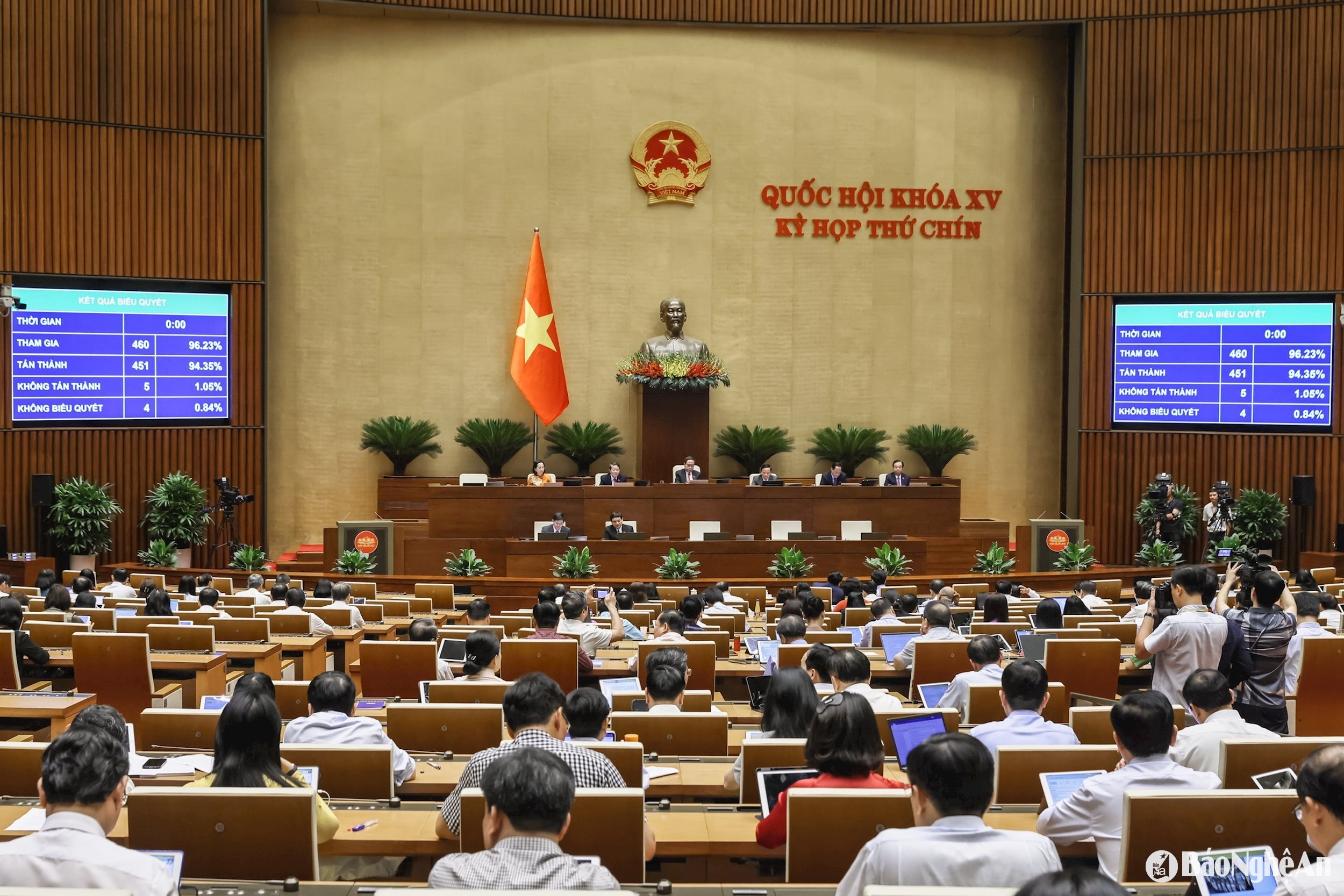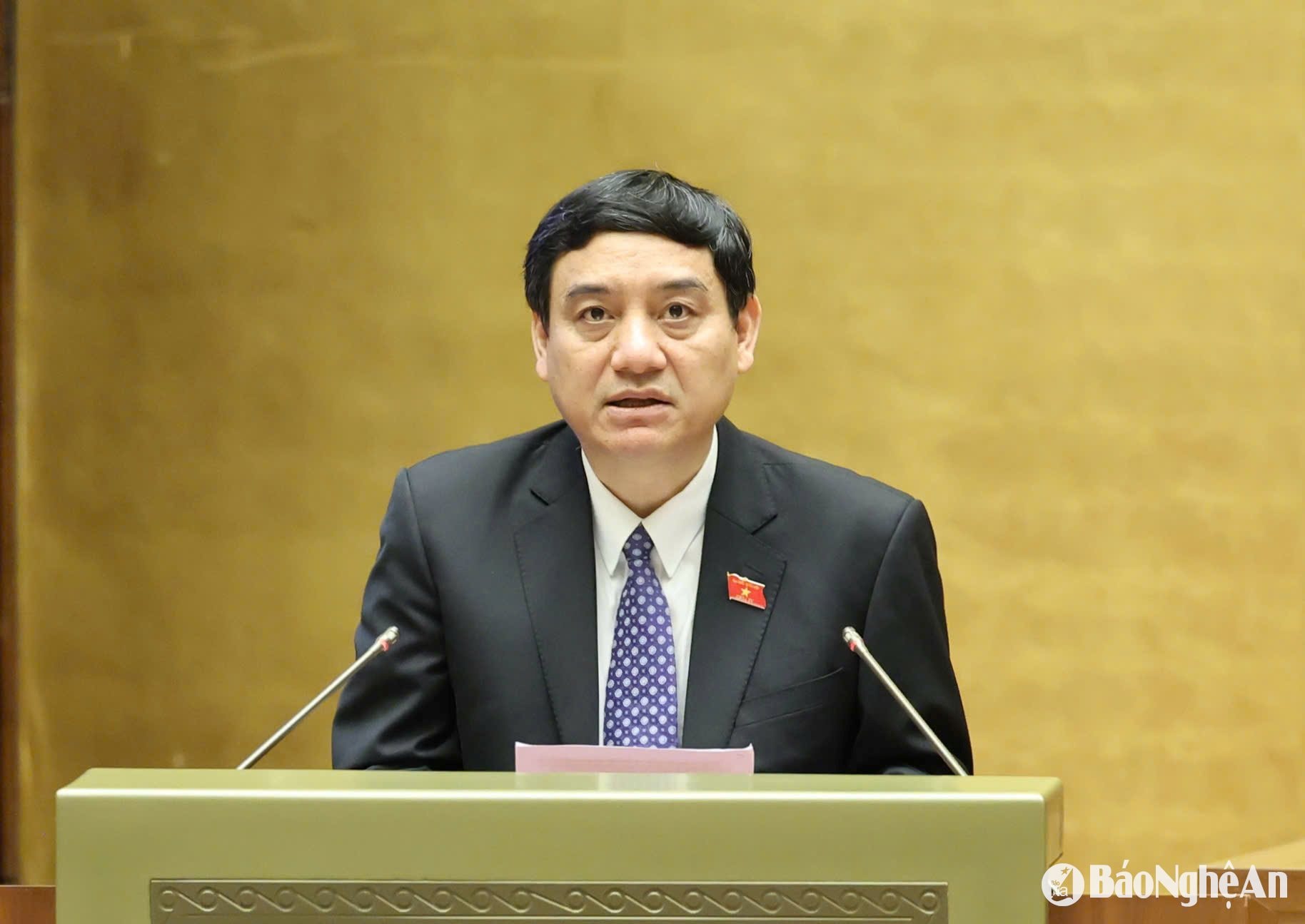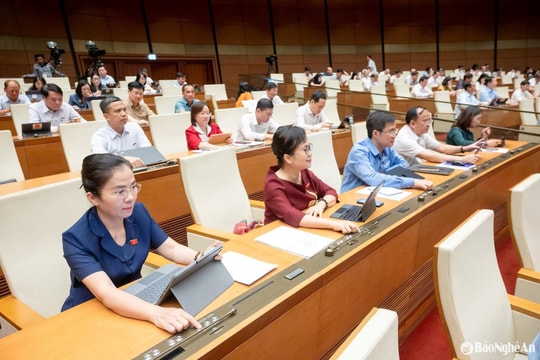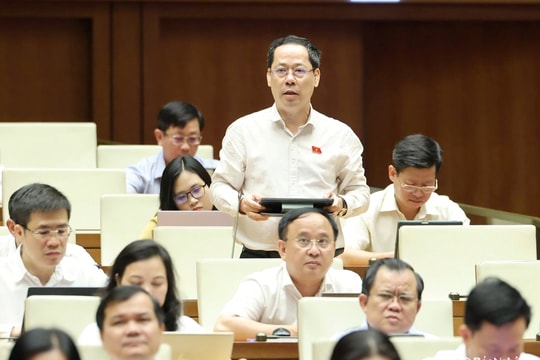Details of regulations on salaries and allowances for teachers have just been approved by the National Assembly.
This is the first time Vietnam has a separate law that comprehensively regulates the teaching staff, from standards, recruitment, training to regimes, policies and career development.
On the morning of June 16, continuing the working program of the 9th Session, under the direction of Vice Chairwoman of the National Assembly Nguyen Thi Thanh, the National Assembly voted to pass the Law on Teachers, with 451/460 delegates present in favor, reaching 98% of the total number of delegates participating in the vote.

Ranked highest in the administrative career salary scale system
One of the most concerned contents is the salary and allowance policy for teachers. In particular, in public educational institutions: Teachers' salaries are ranked highest in the administrative and career salary scale system; preferential allowances and other allowances depend on the nature of the job, by region according to the provisions of law.
Preschool teachers; teachers working in ethnic minority areas, mountainous areas, border areas, islands and areas with especially difficult socio-economic conditions; teachers teaching in specialized schools; teachers implementing inclusive education; teachers in some specific fields and occupations are entitled to higher salaries and allowances than teachers working in normal conditions.
The salary of teachers in non-public educational institutions is implemented according to the provisions of the law on labor.
Teachers working in industries and professions with special regimes are entitled to special regimes according to the provisions of law and are only entitled to the highest level if that policy coincides with the policy for teachers.
The National Assembly assigned the Government to specify in detail the salaries and allowances for teachers.

Students should not be forced to take extra classes.
In addition, the Law also has 2 articles (Article 10) and (Article 11) regulating teachers' ethics and what must not be done.
Accordingly, the regulations on teachers' ethics include the rules of conduct of teachers in their relationships with students, colleagues, students' families and the community. The Minister of Education and Training promulgates the code of conduct of teachers.
Regarding what is not allowed to do, the Law stipulates: Teachers in public educational institutions are not allowed to do what civil servants are not allowed to do according to the provisions of the law on civil servants and other relevant legal provisions. Teachers in non-public educational institutions are not allowed to perform acts prohibited in the field of labor according to the provisions of the law on labor and other relevant legal provisions.
In addition to the above regulations, teachers are not allowed to do the following: Discriminate among students in any form; cheat, intentionally falsify results in student recruitment and assessment activities; force students to participate in extra classes in any form; force students to pay money or goods outside of the provisions of law; take advantage of the title of teacher and professional activities to commit illegal acts.
.jpg)
In addition, the Law also stipulates what organizations and individuals are not allowed to do towards teachers, including: Not fully implementing the regime and policies for teachers as prescribed by law; posting and disseminating information that attributes responsibility to teachers in professional activities without a conclusion from a competent authority; other things that are not allowed to be done as prescribed by law.
Also in the working session on the morning of June 16, the National Assembly voted to pass the Resolution on amending and supplementing a number of articles of the Constitution of the Socialist Republic of Vietnam; Law on Organization of Local Government (amended); Law on Employment (amended); Law on amendments and supplements to a number of articles of the Law on Advertising; listening to the presentation (supplement) and the report on the examination (supplement) of the draft Law on Railways (amended); discussing in the hall the draft Resolution on exemption and support of tuition fees for preschool children, general education students, and people studying general education programs at educational institutions in the national education system; draft Resolution on universalizing preschool education for preschool children from 3 to 5 years old.

.jpg)


